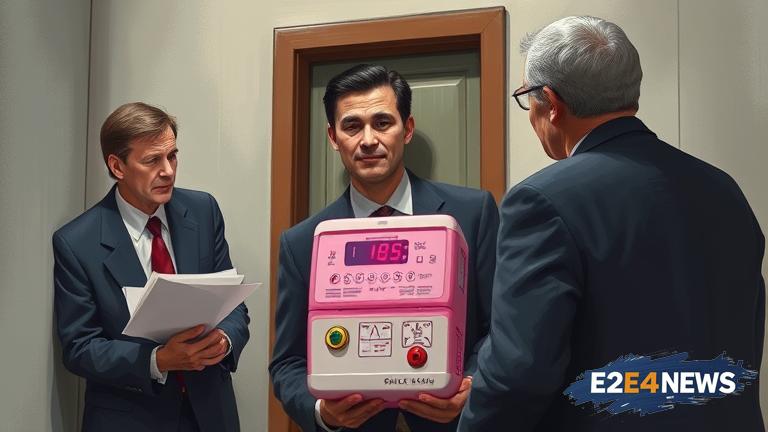In a shocking turn of events, attorneys are making a last-minute appeal to prevent the execution of a man with an activated defibrillator, citing concerns that the procedure could result in a ‘grotesque spectacle’. The case has sparked widespread debate and outrage, with many questioning the ethics and humanity of executing an individual with a life-sustaining medical device. The man, whose identity has not been released, is scheduled to be executed by lethal injection, but his lawyers argue that the presence of the defibrillator could cause unnecessary suffering and complications. The device, which is implanted in the man’s chest, is designed to regulate his heartbeat and prevent cardiac arrest. However, the attorneys claim that the execution process could interfere with the device’s functioning, potentially leading to a prolonged and agonizing death. The case has drawn comparisons to other high-profile executions, where inmates have suffered from botched procedures and prolonged deaths. The lawyers are urging the court to consider the potential consequences of executing the man with the defibrillator, citing concerns over the dignity and humanity of the process. They argue that the execution could be delayed or commuted, allowing for further review and consideration of the man’s medical condition. The case has also raised questions about the role of medical professionals in the execution process, with some arguing that doctors and nurses should not be involved in procedures that could cause harm or suffering. The American Medical Association has weighed in on the issue, stating that physicians should not participate in executions, citing concerns over the ethics and morality of the process. The case is being closely watched by human rights groups and advocates, who are calling for greater transparency and accountability in the execution process. The use of lethal injection as a method of execution has been widely criticized, with many arguing that it is inhumane and prone to errors. The case has also sparked a wider debate about the use of capital punishment in the United States, with some arguing that it is a barbaric and outdated practice. The man’s lawyers are hoping that the court will consider their appeal and grant a stay of execution, allowing for further review and consideration of the case. The decision is expected to be made in the coming days, and the outcome is far from certain. The case has significant implications for the future of capital punishment in the United States, and could potentially set a precedent for future cases involving inmates with medical conditions. The lawyers are urging the public to consider the potential consequences of the execution, and to speak out against the use of capital punishment. The case has also raised questions about the role of the media in reporting on executions, with some arguing that the press should not sensationalize or glorify the process. The use of social media has also been criticized, with some arguing that it can create a ‘spectacle’ around executions, rather than promoting thoughtful and nuanced discussion. The case is a complex and multifaceted one, involving issues of law, medicine, ethics, and human rights. As the court considers the appeal, the nation waits with bated breath, wondering what the outcome will be. The decision will have significant implications, not just for the man involved, but for the wider debate around capital punishment and the use of medical devices in executions. The case is a stark reminder of the complexities and challenges involved in the execution process, and the need for careful consideration and nuanced discussion. The lawyers’ appeal is a last-ditch effort to prevent a potentially ‘grotesque spectacle’, and to ensure that the man is treated with dignity and respect. The outcome is far from certain, but one thing is clear: the case will have significant implications for the future of capital punishment in the United States.





